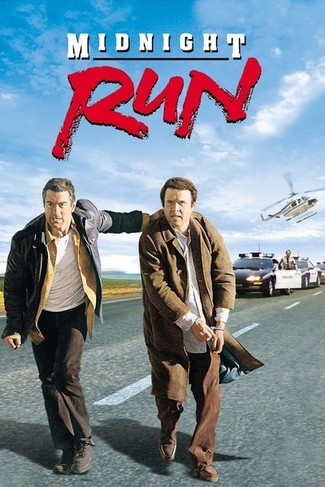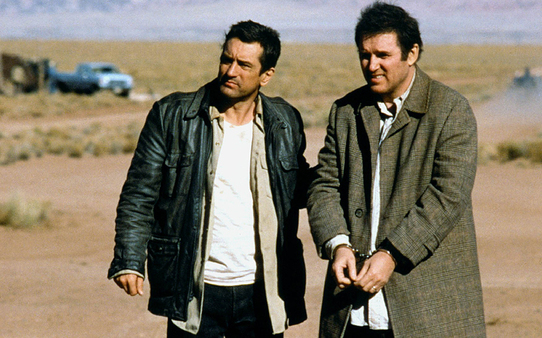|
“We have never not gotten the note that we need to raise the stakes. ‘Raise the stakes’ is what every executive must learn on the first day of executive school.” said Rhett Reese on the excellent Q&A with Jeff Goldsmith. He, along with his co-writing partner Paul Wernick, were discussing the tortuous six year journey it took to get ‘Deadpool’ to the screen. Unlike most Marvel superhero films where the stakes are raised until the entire planet is under threat and only one (in the case of the standalone adventures) or most (in the case of the Avengers and X-men films) superhero/es can save the day, ‘Deadpool’ is different. What’s at stake in ‘Deadpool’ is love. Just when it looks like Ryan Reynolds’ Wade and Morena Baccarin’s Vanessa have found their perfect match – he does allow her to take him up the ass on International Women’s Day – he is struck down by cancer. Then, when he thinks he is going to be cured, Francis fries his flesh and he can’t bear the thought of allowing Vanessa to see him that way. And finally, Francis kidnaps Vanessa to use her to get to Wade. The final climactic battle isn’t Deadpool trying to overcome impossible odds to save the world; it’s Deadpool trying to kill the man who made him look like a giant angry avocado. If, as an exec, you’re used to watching the Avengers fight an impossible swarm of aliens or the X-men battle a god, then what is at stake in 'Deadpool' must seem pretty paltry. But, as Reese, Wernick and Goldsmith discuss, after a $260 million opening weekend, it didn’t seem paltry to the audience. The problem with most stories isn’t what’s at stake - most writers seem to understand that the hero’s life, the life of someone he/she loves or his/her entire way of life is a good place to start – the problem is how to raise the stakes. If a story starts with a mother struggling to scrape together enough money to pay for her son’s operation, the stakes at the outset are pretty high, so how do you raise them? I have always thought that Martin Brest’s 1988 film ‘Midnight Run’ is a masterclass in how to raise the stakes. Robert De Niro plays a bounty hunter who dreams of getting out of a business in which he is always being shot and sworn at so he can open a café. He thinks the opportunity has arrived when he’s asked to find Charles Grodin’s Jonathan Mardukas. Mardukas stole $15 million from the Chicago mob, gave it to charity and then went into hiding after getting a bail bond company to pay his bail. The company, run by Eddie Moscone, played by the constantly excellent Joe Pantoliano, wants Mardukas found and brought back to LA or it’ll lose a quarter of a million dollars. De Niro’s Jack Walsh has five days to complete the task. As with any good story the setup is simple: a main character with a very clear idea what he wants and a time limit in which he must achieve it. And, as with any good story, things start to get complicated immediately: the FBI, who are also looking for Mardukas, descend on Jack and warn him to steer clear because he’s only going to get in their way. Yaphet Kotto’s Agent Alonzo Mosley threatens Jack in no uncertain terms. Dennis Farina’s mobster, Jimmy Serrano, also hears what Jack is up to and sends two goons to finish Mardukas off before he gets arrested and tells the police everything he knows about Serrano’s business. So even before Jack has found Mardukas the stakes have been raised: if he does what he’s set out to do he’ll either be arrested by the FBI or killed by the mob - his freedom and life are at stake. So how do you raise the stakes from that? Well he finds Mardukas and, understandably, Mardukas has no intention of going to prison because he knows Serrano’s people will kill him. From the outset Jack’s golden goose makes Jack’s life difficult: he fakes a fear of flying so they get kicked off the plane which was going to get Jack back to LA from New York in plenty of time. So, pursued by the FBI, the mob and an inept bounty hunter called Marvin, they have to make their way across the US by any means possible (apart from flying – until Mardukas tries to steal a plane!) They run out of money, food and transport. In every single scene Jack’s plan to get Mardukas to LA by midnight on a certain day so he can leave bounty hunting and open his cafe is tested to the extreme – just when the situation looks impossible, it becomes more impossible as first the FBI, then the mob, then Marvin try to snatch Mardukas away from Jack. But the genius of ‘Midnight Run’ is that it does not only rely on external stakes – having to outwit the FBI or dodge bullets fired at them by the mob – there are emotional stakes. Mardukas keeps telling Jack that Serrano’s men will eventually get to him, and, as hard as he might try, Jack can’t ignore the fact that he is leading a good man to his death. What's at stake is Jack's desire to always be on the side of good. Also Jack, who hasn’t seen his wife and daughter for six years since he was run out of Chicago by a corrupt police force who were all taking bribes from a drug smuggler, is forced to go to their house and ask for money. As soon as his ex-wife opens the door you can see he still loves her but she’s now married to one of the corrupt cops. Then his daughter offers him her babysitting money and it breaks his heart. And this leads to the ultimate stake for a man with a strong moral code like Jack, a man who wouldn’t take a bride, because Mardukas realises that the drug smuggler who ran Jack out of Chicago and Jimmy Serrano are one and the same man: if Jack does what he has set out to do he will, in effect, be helping the criminal who destroyed his life. An impossible situation just became more impossible because what is at stake now is everything Jack sacrificed, a wife he still loves and a daughter he misses, and everything he stood for when he wouldn't take a bribe. The fourth act of ‘Midnight Run’ ends exactly where a fourth act should: Marvin manages to snatch Mardukas away from Jack and Jack is arrested by the FBI. There is no way in hell, we think, is he going to come out on top of this situation. But then, as the story builds to its climax - and this is the only time it should happen - through the main character’s ingenuity, suddenly the impossible seems possible. Both ‘Deadpool’ and ‘Midnight Run’ raise the stakes in the same way: at the beginning of the stories the main characters are given what they want – in ‘Deadpool’ Wade finds a woman who is as deviant as he is and in ‘Midnight Run’ Jack sees a way to leave bounty hunting forever – and then what they want is taken away from them and they have to fight to get it back with each scene raising the stakes in some way - physically, emotionally, morally. But through the fight they discover something else: what they need.
1 Comment
22/1/2017 07:42:48 am
Raising the stakes are one of the few things that are challenging. I am glad that I have seen this and I will share this to my friends an family as well. A reading for all of us read and share as well. Thank you for this reading
Reply
Leave a Reply. |
ScriptPlayerWriter, reader, pontificator. Archives
May 2023
Categories |



 RSS Feed
RSS Feed